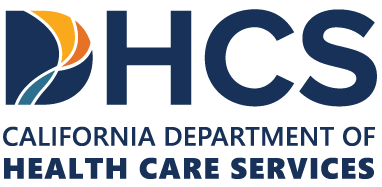Alcohol consumption impacts mental health through neurobiological mechanisms that alter brain chemistry, mood regulation, and cognitive function, triggering immediate effects and long-term complications.
This page outlines the connection between alcohol and mental health, empowering people to make more informed decisions about alcohol intake while identifying indicators of problematic use patterns that may require professional intervention. You’ll also discover how to connect with compassionate, evidence-based alcohol addiction treatment.
The Neurobiological Foundation of Alcohol/Brain Interactions
Alcohol directly interferes with neurotransmitter systems that regulate mood, anxiety, and cognitive processes.
Ethanol molecules cross the blood-brain barrier within minutes of consumption, binding to GABA (gamma-aminobutyric acid) receptors and intensifying inhibitory signals throughout the CNS (central nervous system). This interaction produces the characteristic relaxation and sedation associated with alcohol consumption. Simultaneously, alcohol suppresses glutamate activity, the brain’s primary excitatory neurotransmitter.
This dual mechanism creates temporary feelings of calm and reduced anxiety, explaining why so many people initially turn to alcohol for stress relief. However, these effects trigger compensatory mechanisms that ultimately worsen mental health symptoms.
Chronic alcohol exposure leads to neuroadaptation, where the brain attempts to maintain equilibrium by reducing natural GABA production and increasing glutamate sensitivity. This adaptation creates physical dependence and contributes to withdrawal symptoms when alcohol levels decrease. The brain becomes hyperexcitable, provoking heightened anxiety, irritability, and mood instability.
How Alcohol Directly Affects Mental Health
Here are seven ways in which alcohol abuse can trigger mental health complications:
- Depression and alcohol: a bidirectional relationship
- Anxiety disorders and alcohol consumption
- Cognitive function and memory impairment
- Sleep architecture disruption
- Social and behavioral consequences of alcohol abuse
- Alcohol tolerance and withdrawal effects
- Nutritional deficiencies and mental health
1) Depression and alcohol: a bidirectional relationship
Research shows strong correlations between alcohol use disorders (the clinical term for alcoholism) and major depressive episodes. Studies indicate that one-third of those with major depressive disorder also meet the criteria for alcohol use disorder. At the same time, alcohol-dependent individuals are more than three times as likely to develop depression as the general population.
At first, alcohol consumption elevates dopamine levels in reward pathways, creating temporary mood enhancement. Regular use, though, depletes dopamine reserves and reduces receptor sensitivity, leading to anhedonia (the inability to experience pleasure from previously enjoyable activities). This neurochemical imbalance contributes to persistent low mood and motivation deficits associated with depression.
The relationship operates bidirectionally. Depression increases vulnerability to alcohol misuse, as many people seek relief from emotional pain through self-medication. Regrettably, alcohol’s depressant effects compound existing symptoms, driving a destructive cycle where increased consumption exacerbates depression, prompting more alcohol consumption.
Sleep disruption is another pathway linking alcohol and depression. While alcohol may help someone fall asleep, it dramatically impairs sleep quality by reducing REM (rapid eye movement) sleep and fragmenting sleep architecture. Poor sleep quality directly influences mood regulation, emotional processing, and stress resilience, contributing to depressive symptoms.
2) Anxiety disorders and alcohol consumption
Anxiety disorders commonly co-occur with alcohol misuse, affecting up to 50% of those seeking help for problematic alcohol use. The relationship between anxiety and alcohol consumption is rooted in physical and psychological mechanisms that reinforce problematic drinking patterns.
Many discover alcohol’s anxiolytic properties during social situations or periods of heightened stress. The temporary reduction in anxiety symptoms provides immediate relief, positively reinforcing continued use. That said, this coping strategy proves counterproductive over time as tolerance develops and rebound anxiety emerges.
Rebound anxiety occurs as alcohol metabolizes and GABA activity normalizes. The brain’s compensatory mechanisms leave people more anxious than baseline levels, often triggering additional alcohol consumption to manage discomfort. This pattern establishes a cycle of dependence where alcohol becomes necessary to maintain psychological equilibrium.
Panic disorders show powerful associations with alcohol misuse. Studies suggest that individuals with panic disorders are much more likely to develop alcohol use disorders. The unpredictable nature of panic attacks pushes some people toward consistent alcohol consumption as a preventive measure, inadvertently worsening their condition.
3) Cognitive function and memory impairment
Alcohol’s impact on cognitive function extends far beyond the temporary effects of intoxication. Chronic consumption affects memory formation, executive function, and decision-making capabilities through multiple mechanisms involving brain structure and neurotransmitter balance.
Acute alcohol intoxication impairs working memory and attention by disrupting prefrontal cortex activity. These brain regions coordinate complex thinking, planning, and impulse control. Even moderate consumption affects cognitive flexibility and problem-solving abilities, although these effects may go unnoticed during casual use.
Ongoing alcohol exposure causes structural brain changes, including reduced gray matter volume and white matter integrity. Neuroimaging studies reveal pronounced atrophy in the frontal and temporal regions, which are responsible for executive function, memory consolidation, and emotional regulation. These changes contribute to difficulties with decision-making, impulse control, and emotional stability.
Blackouts are severe and acute memory impairment caused by alcohol’s interference with hippocampal function. During blackout episodes, new memories cannot form properly, creating gaps in recollection despite apparent normal behavior during intoxication. Frequent blackouts indicate dangerous consumption levels with increased risk of alcohol-related brain damage.
4) Sleep architecture disruption
Quality sleep is integral to mental health maintenance, yet alcohol consumption severely disrupts standard sleep patterns. This helps explain why alcohol often worsens anxiety and depression despite its initial sedating properties.
Alcohol reduces sleep latency, allowing people to fall asleep more quickly. This effect leads many to use alcohol as a sleep aid. However, alcohol metabolism during sleep interferes with sleep architecture, affecting REM sleep stages that are central to emotional processing and memory consolidation.
As blood alcohol levels decline throughout the night, the brain experiences rebound excitations that fragment sleep and cause frequent awakenings. Sleep quality deteriorates as deep sleep stages become less accessible, preventing the restorative processes fundamental to mental health maintenance.
Chronic sleep disruption from regular alcohol use creates an array of mental health problems. Sleep deprivation affects mood regulation, stress hormone production, and cognitive function. Individuals also become more vulnerable to anxiety, depression, and emotional instability as sleep debt accumulates over time.
5) Social and behavioral consequences of alcohol abuse
Beyond the direct neurobiological effects of alcohol abuse, social and behavioral changes can compound psychological distress. These secondary effects can be equally damaging to overall well-being and recovery prospects.
Alcohol impairs judgment and inhibitions, prompting behaviors that individuals may later regret. These actions can unravel relationships, lead to legal problems, or create hazardous situations. The shame and guilt following such incidents contribute to negative self-perception and inflame existing mental health conditions.
Social isolation often develops as alcohol use progresses. Some people may withdraw from activities, relationships, or responsibilities that conflict with drinking habits. This isolation reduces social support networks just when people need connection most, exacerbating feelings of loneliness and depression.
Employment and financial problems commonly arise from alcohol-related issues, creating additional stress and anxiety. Performance difficulties, absenteeism, or job loss compound existing mental health challenges while reducing access to healthcare and treatment resources.
6) Alcohol tolerance and withdrawal effects
Tolerance develops as the brain adapts to regular alcohol exposure, requiring increased consumption to achieve the initial effects. This adaptation process directly drives mental health deterioration through several mechanisms that worsen anxiety, depression, and cognitive function.
As tolerance grows, individuals consume larger quantities of alcohol to experience the desired mood effects. Higher consumption levels intensify negative impacts on sleep, nutrition, and brain function while increasing the likelihood of physical dependence and withdrawal symptoms.
Withdrawal symptoms manifest as alcohol levels decrease, causing severe psychological distress. Anxiety, irritability, depression, and cognitive fog characterize alcohol withdrawal, often driving people to resume drinking for symptom relief. This cycle maintains addiction while preventing natural mood stabilization.
Kindling effects occur with repeated withdrawal episodes, where symptoms become progressively more severe with each occurrence. This phenomenon explains why people with extensive drinking histories often experience more intense anxiety and depression during periods of reduced consumption.
7) Nutritional deficiencies and mental health
Chronic alcohol consumption contributes to nutritional deficiencies that directly impact mental health through effects on neurotransmitter synthesis and brain function. These deficiencies may be unrecognized but play a part in perpetuating psychological symptoms.
Alcohol interferes with the absorption and utilization of B vitamins, especially thiamine, folate, and B12. These vitamins are essential for the production of neurotransmitters and the proper functioning of the nervous system. Deficiencies can lead to depression, anxiety, cognitive impairment, and increased susceptibility to stress.
Magnesium depletion occurs commonly with regular alcohol use, affecting more than 300 enzymatic processes, including those involved in mood regulation and stress response. Low magnesium levels correlate with increased anxiety, muscle tension, and sleep difficulties, compounding alcohol’s direct effects on mental health.
Chronic inflammation stems from the effects of alcohol on gut health and immune function. Inflammatory processes affect brain function and mood regulation, contributing to depression and anxiety symptoms. The gut-brain connection means that alcohol-induced digestive problems can directly impact mental health through multiple pathways.
Treatment for Alcohol Use Disorder
Addressing alcohol’s impact on mental health demands comprehensive treatment approaches that target physical dependence and underlying psychological conditions. Integrated treatment models deliver superior treatment outcomes.
Medical supervision during detox helps those with severe alcohol dependence and mitigates potentially dangerous withdrawal symptoms. Detoxification programs provide safe environments for withdrawal management while beginning mental health stabilization processes.
Psychotherapeutic interventions address alcohol use patterns and co-occurring mental health conditions. CBT (cognitive behavioral therapy) helps people identify triggers, develop healthy coping strategies, and restructure thought patterns that maintain problematic drinking behaviors.
MAT (medication-assisted treatment) may include antidepressants, anti-anxiety medications, or FDA-approved alcohol cessation aids, depending on individual needs. Medication effectiveness typically improves after alcohol discontinuation when brain chemistry begins normalizing.
Participating in a support group provides valuable peer connections and accountability, both of which are beneficial for maintaining ongoing abstinence. Organizations addressing alcohol use and mental health offer specialized resources for individuals managing co-occurring conditions.
Recovery generally involves gradual improvement in mental health symptoms as brain function stabilizes, with neurological healing taking place over months or years rather than weeks. Patience is a core component of sustained sobriety.
Get Help with Alcohol Addiction at The Retreat South Coast
At The Retreat South Coast, we offer many personalized alcohol addiction treatment programs to help people get sober and stay sober.
Our compassionate team of medical professionals includes licensed therapists, addiction specialists, psychiatrists, and recovery support specialists. Individualized treatment plans blend evidence-based and holistic therapies in a healing environment to promote whole-body recovery from alcohol abuse.
For those dealing with alcohol addiction and co-occurring mental health disorders, we offer integrated dual diagnosis treatment programs to address both issues simultaneously. This approach has been proven to deliver more positive outcomes than treating each condition separately.
Get help right away by calling admissions today at (949) 612-4789.








